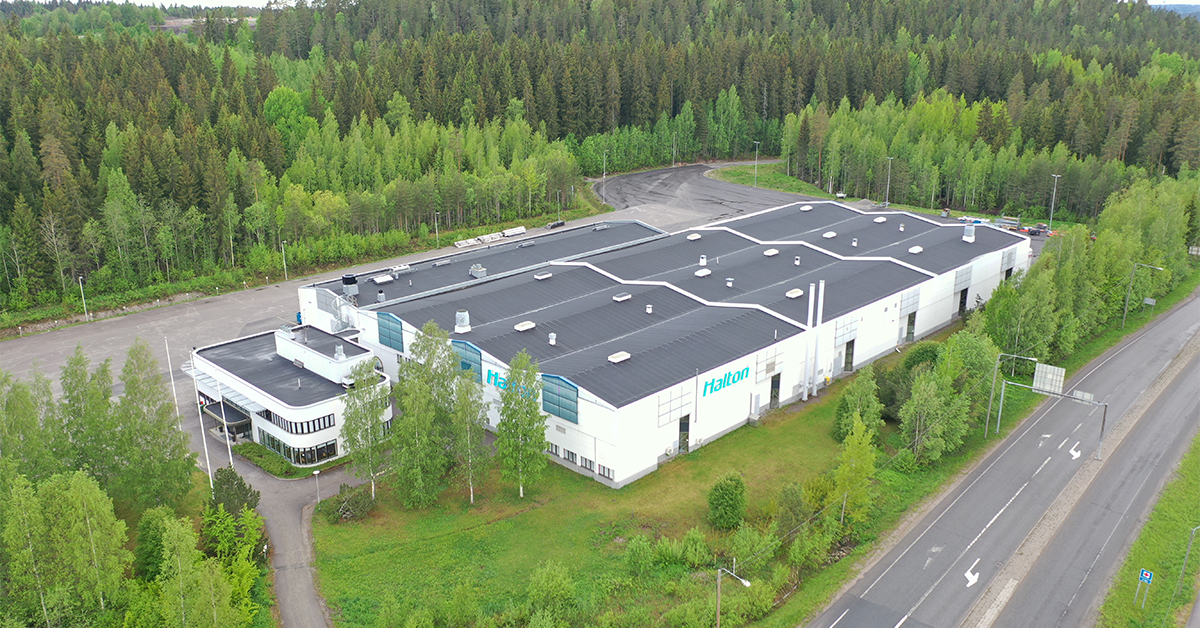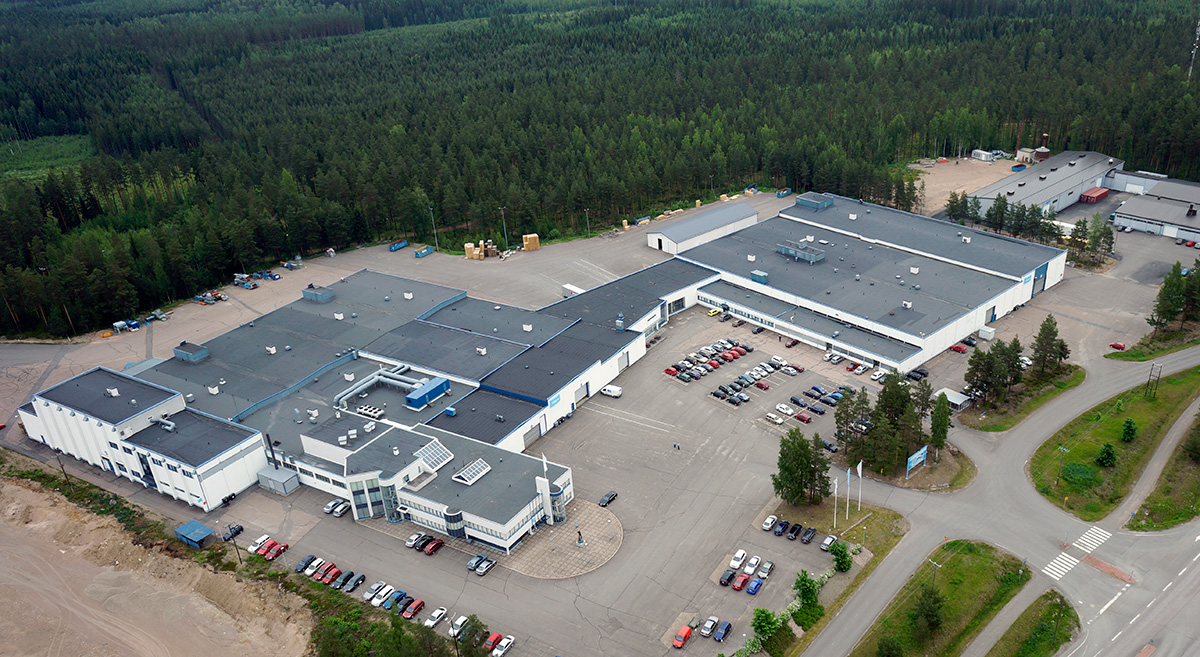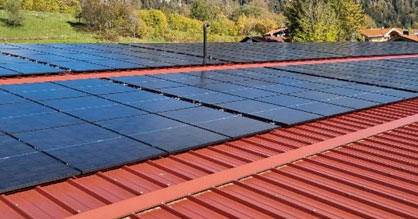

Environmental Responsibility at Halton
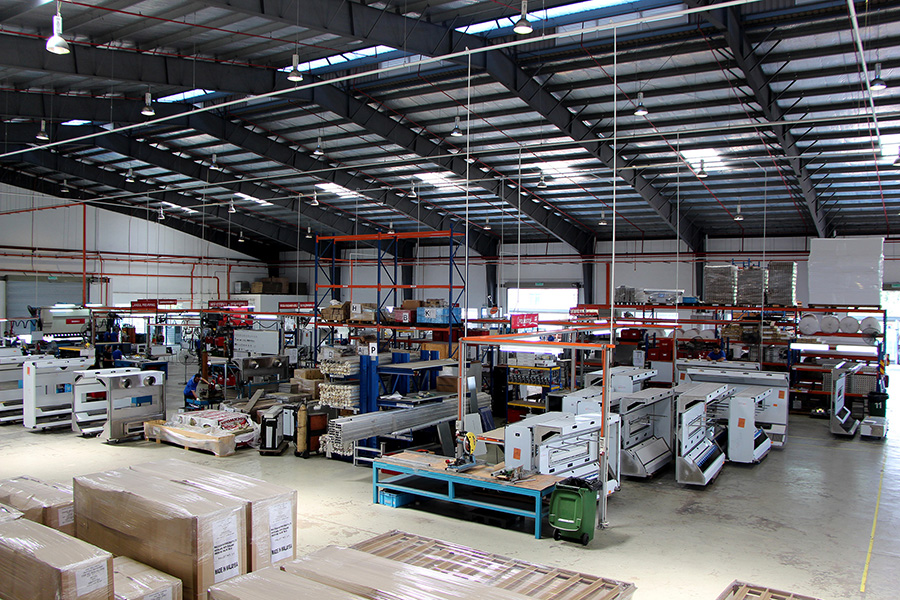
Halton’s major environmental impacts arise from the materials used, the energy consumed during production, and the energy required by the products throughout their life cycle. We have made significant investments in energy efficiency within our factories as they transition to green energy sources, including biogas, geothermal heating, carbon-free electricity, and solar-generated electricity. Our roadmap focuses on gradually decarbonising Halton’s fleet and reducing Scope 3 emissions, particularly those from steel.
At Halton, we see circularity as a dual opportunity. First, through Halton’s innovation and product (system) design, we can fundamentally influence how effectively circular value is realised. Secondly, our strategy focuses on sustaining robust growth in Services. This approach guarantees that product and system life cycles are optimised and extended.
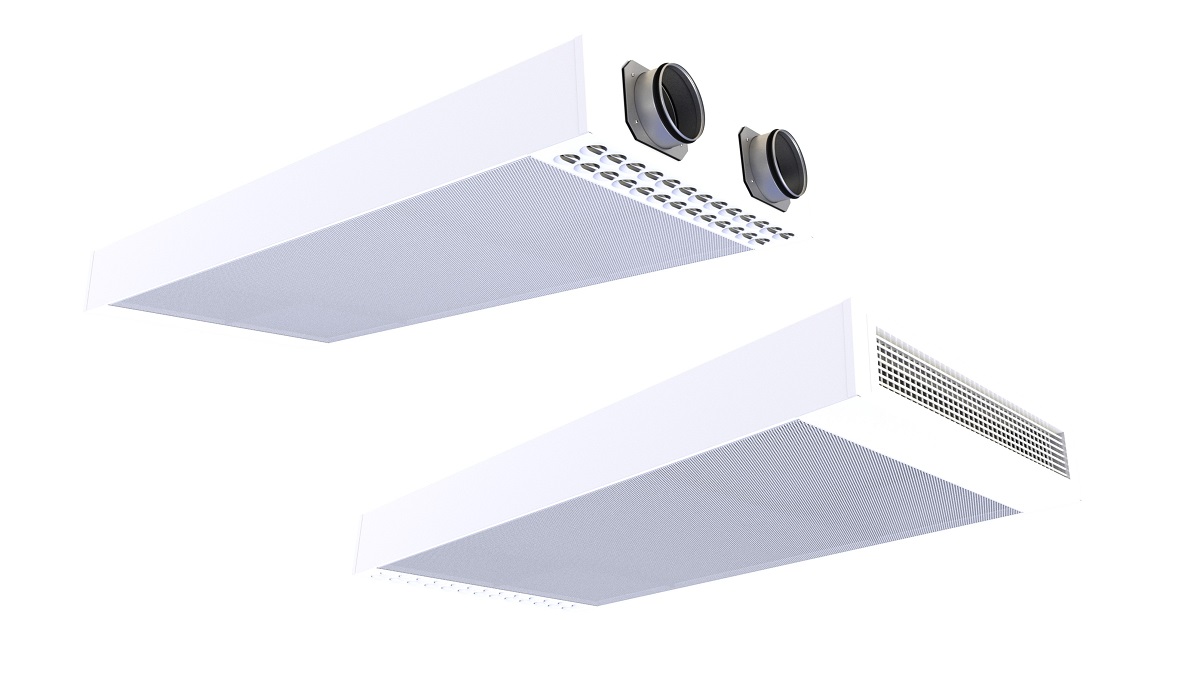
New sustainable technologies
Our main environmental contribution comes from our sustainable solutions and new technologies that we can provide to our customers. A notable sustainability achievement in 2023 was the conception of a pioneering solution for the commercial real estate sector. The solution, termed TTAP (Terminal Treatment of Air), materialised from Halton’s strategic licensing alliance with Phononic. In December 2023, the inauguration of the first-of-its-kind commercial deployment of TTAP for Peltier, implemented in a historic building in the core of Paris, represents the world’s most extensive solid-state HVAC platform, substantially curtailing greenhouse gas emissions while concurrently enhancing workplace comfort. This cutting-edge technology reduces carbon emissions by approximately 15% and cost savings by 18% compared to traditional systems, thereby instilling confidence in its financial implications.
Read more about our technologies here.
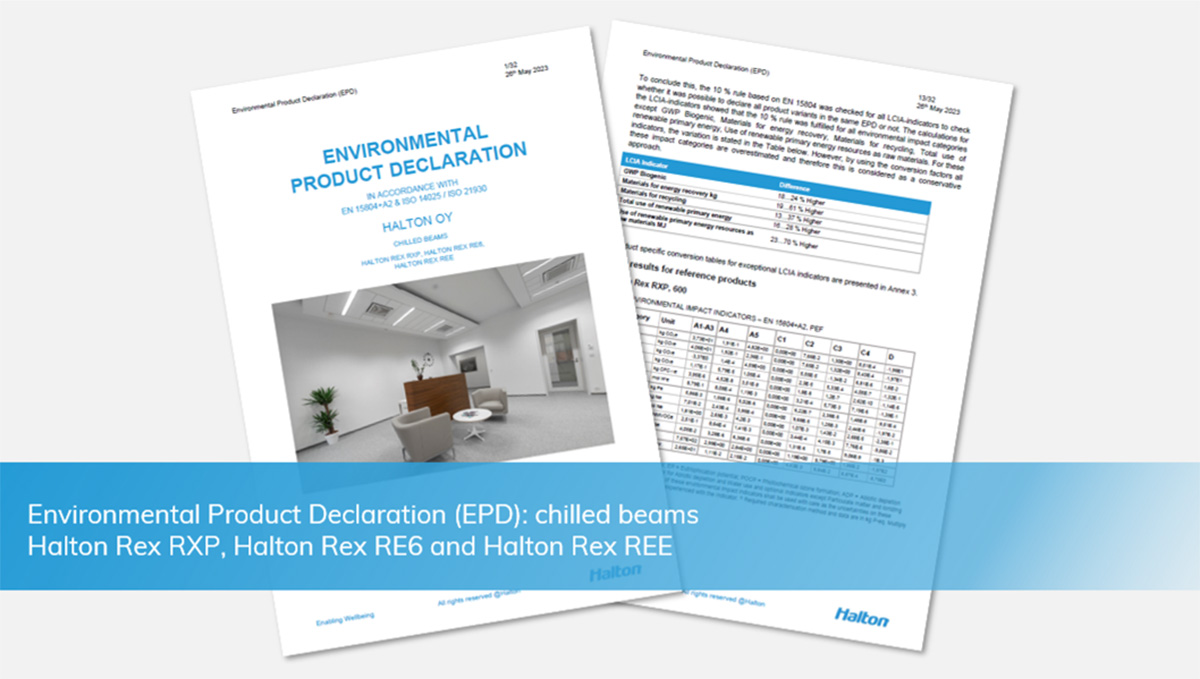
Advancing sustainability through EPD documentation
In 2024, Halton continued to advance its Halton Environmental Product Declaration (EPD) initiatives, building on the foundations established by Halton’s initial EPD publications in spring 2023. Through the application of product life cycle analysis, we are able to pinpoint areas for development, thereby facilitating a reduction in the environmental footprint of our products throughout their life cycles, from production to utilisation. Notably, life cycle assessment (LCA) underpins our research and development efforts, directing focus towards areas where we can have the most substantial beneficial influence on our customers’ sustainability objectives.
Read more about our first EPDs.

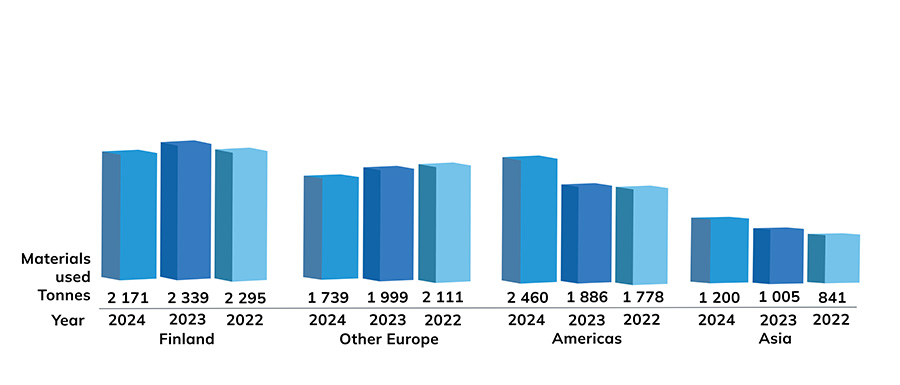
Used materials each year
At Halton most of our production materials consist of stainless and galvanised steel, along with aluminium. In addition, all our factories utilise wood for packaging materials. We aim to minimise and reuse packaging, while reducing or eliminating plastic whenever possible. In 2024, the share of recycled content in materials purchased was 64% for stainless steel, 31% for galvanised steel, 95% for copper, 54% for aluminium, and 53% for aluminised stainless steel.
Read more about our material purchases from our Sustainability Report.
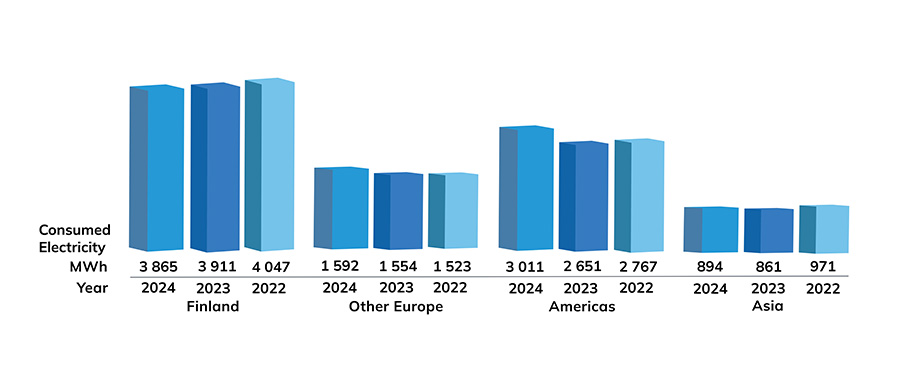
Used and produced energy each year
In 2024, Halton’s units reported a total electricity purchase of 9,057 MWh, along with 7,247 MWh of heat and 1,446,364 litres of vehicle fuel. Electricity consumption remained relatively stable compared to the previous year.
Halton aims to increase solar energy production across its facilities in the coming years. In 2024, Halton produced 382 MWh of electricity from solar sources, with 306 MWh (80%) used for Halton operations and the remaining 77 MWh (20%) supplied to the local electricity grid. This represented a significant 160% increase in solar energy production compared to the previous year.
Read more about our energy management from our Sustainability Report.
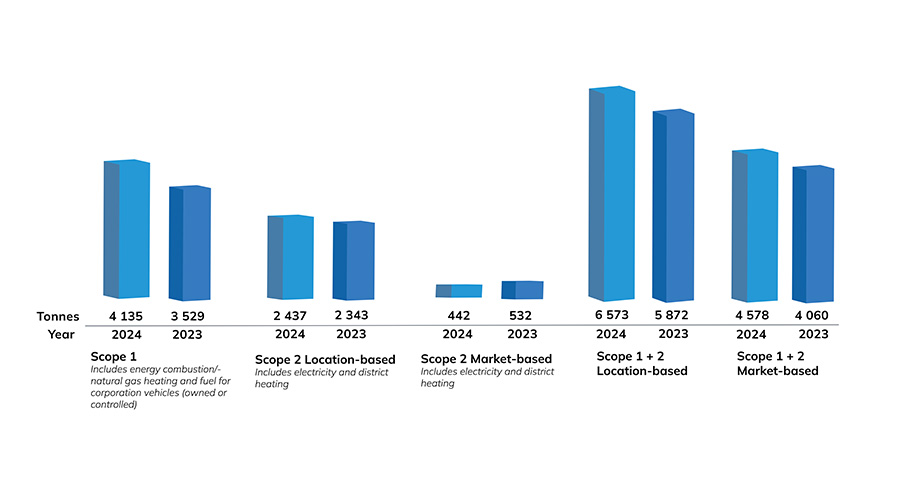
CO2 emissions Scope 1 and 2
In 2024, Halton’s total Scope 1 and Scope 2 market-based CO2 emissions were 4 578 CO2 tonnes. Scope 1 CO2 emissions included emissions from vehicles (3,342 CO2 tonnes) and from natural gas heating (793 CO2 tonnes). Scope 2 emissions comprised 418 CO2 tonnes from electricity consumption and 24 CO2 tonnes from geothermal heating, both calculated using the market-based method. Emissions from vehicle fuels represent the largest single source of emissions in Halton’s operations. Transitioning to alternative energy sources for vehicles is a gradual process for Halton, influenced by the development of national fuel and electricity distribution infrastructures.
Read more about our CO2 emissions Scope 1 and 2 from our Sustainability Report.
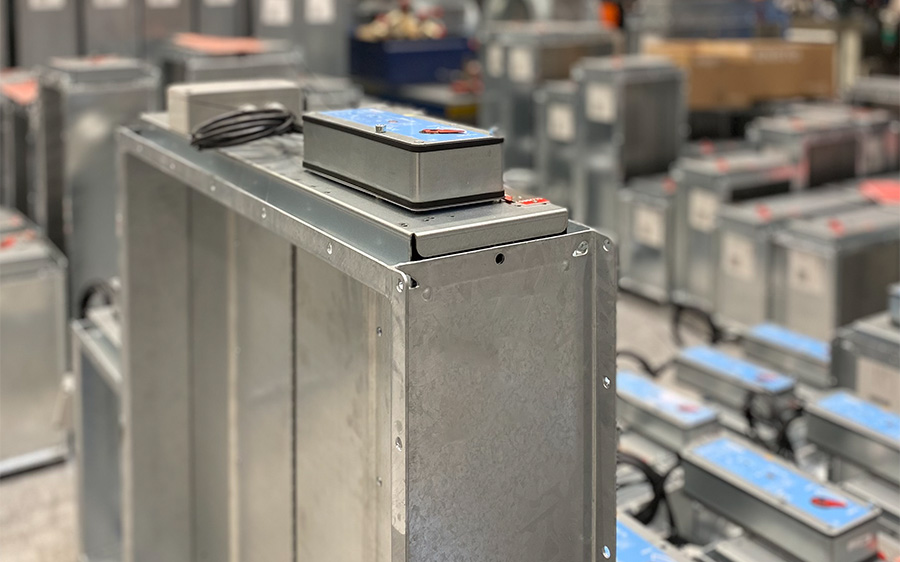
CO2 emissions Scope 3
A large proportion of Halton’s emissions stem from our value chain. We have completed our scope 3 inventory and identified categories relevant to the company. As a next step, we are currently focused on enhancing and expanding emissions calculations. In 2024, Scope 3 CO2 emissions of purchased goods and services were 20 509 tonnes, fuel and energy-related activities 1 410 tonnes, business travel 1 040 tonnes and upstream leased assets 139 tonnes. Currently, the emissions of purchased goods and services are only calculated for the main materials: stainless steel, galvanised steel, copper, aluminium & aluminised stainless steel.
Read more about our CO2 emissions Scope 3 from our Sustainability Report.

